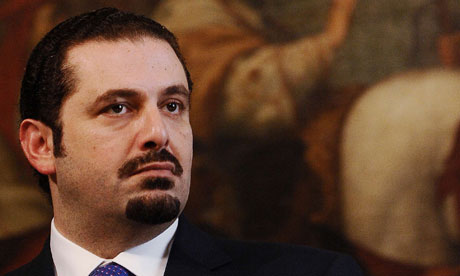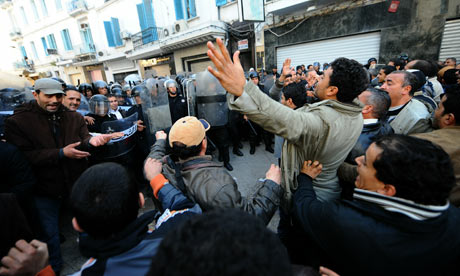Two years have passed since Barack Obama was elected president of the United States. Much to his credit - and in contrast to his immediate predecessor - Obama tried, from his first day in office, to work towards a resolution of the conflict between Israelis and Palestinians.
Two years on, are good intentions the best that Obama’s new policy has to offer? After all, nothing of value has in fact resulted from them. Even worse, given that Obama’s effort to enforce a permanent moratorium on new settlement construction in the West Bank has failed, is that direct negotiations between the conflicting parties have run aground.
Good intentions count for little in life - and for less in politics. What matters, first and foremost, are results.
President George W Bush believed that he needed to take account of only one half of America’s dual role in the Middle East, namely the alliance with Israel. He had no time for the second US role, that of pivotal peace mediator between Israelis and Palestinians, during his entire eight-year presidency. All his initiatives were intended only to pacify the international public. We all know where that led.
From the start, Obama wanted to do things differently, pursuing an active Middle East policy. But the results so far are not very different from those under Bush. In both cases, standstill triumphed over progress.
Given this, and both sides’ intransigence, many would withdraw and try to forget the conflict altogether. But it isn’t as simple as that, because a continuation of the conflict (which is what “forgetting about it” would boil down to) would not only prolong what is a tragedy for both Palestinians and Israelis, but would also be too dangerous for the region. Most ominously, the window of opportunity for a two-state solution could close for good, because realities on the ground will no longer allow it.
For Israelis, this would mean permanent occupation of East Jerusalem and the West Bank, and thus reckoning with an Arab majority, which would erode the foundations of their state - democracy and the rule of law - and thus its legitimacy. Such a development is the greatest threat that Israel faces in the medium term, which makes a two-state solution vital to its own interests.
Of course, from Israeli leaders’ perspective, the status quo, with its absence of terror and missile strikes, is anything but negative. But it won’t last. Moreover, the country’s strategic situation is deteriorating with each passing year, because the global redistribution of power and influence from the West to the East can only weaken Israel’s position.
For the Palestinians, the situation is oppressive, and for Gaza it is an outright humanitarian disaster. They are internally divided between Fatah and Hamas, under Israeli occupation in East Jerusalem and the West Bank, isolated from the outside world in Gaza, hopeless in the region’s refugee camps, and rebuffed by their Arab neighbours. In these circumstances, the loss of a two-state perspective would be a recipe for further indignities and deepening misery.
But, if Israelis and Palestinians share a vital interest in a two-state solution, they have very different interests, and therefore mean very different things when referring to the same issues.
For Israel, security is the top priority; for Palestinians, what matters most is an end to Israeli occupation. Israel cannot afford a second Gaza in the West Bank and East Jerusalem; for the Palestinians, a state with an ongoing Israeli military presence would be worthless.
Perhaps Obama’s central error was that an important but minor matter - stopping new settlements - was given central significance. An indefinite building freeze would lead to the immediate end of Israeli Prime Minister Binyamin Netanyahu’s coalition government in Jerusalem, without giving Israel or Netanyahu anything tangible in return. It should have been clear that Netanyahu would not extend the freeze.
The crucial question that the US must ask both Netanyahu and Palestinian President Mahmoud Abbas is whether they would be willing - here and now - to negotiate in earnest about the final status. If so, a way out of the seemingly irresolvable conflict between Israeli security and Palestinian statehood would open.
The formula could run as follows: a comprehensive agreement about the final status now (taking into account all open questions, including East Jerusalem as the capital of Palestine); implementation of the agreement in pre-defined steps over a longer period of time; and monitoring of the process via a mechanism based on the presence on the ground of a third party (led by the US).This would give Palestinians a guarantee of their state’s borders, its capital, and the Israeli occupation’s pre-defined endpoint.
They could use the time, with international help, to build up effective state institutions, address economic development, and heal the rift between West Bank and Gaza. On this new and permanent basis, they may find a solution for the Palestinian refugees and advance the cause of reconciliation between Fatah and Hamas.
Israel would have a guarantee that its security would not be endangered by a final-status agreement and the establishment of a Palestinian state, and that its withdrawal from the Palestinian territories would be gradual, over several years, and monitored on the ground by a third party. The country would then have clear, internationally recognised borders, enabling it to end permanently the conflict with its Arab neighbours.
While the situation in the Middle East currently looks hopeless, a new attempt that focuses on the essential points, not on minor ones, deserves support. The alternative is the loss of the two-state solution and the perpetuation of a terrible - and terribly perilous - conflict. - Project Syndicate/Institute of Human Sciences
Joschka Fischer, Germany’s foreign minister and vice-chancellor from 1998 to 2005, was a leader in the German Green Party for almost 20 years
| 
